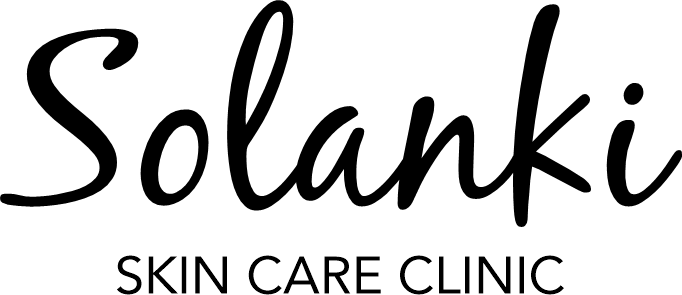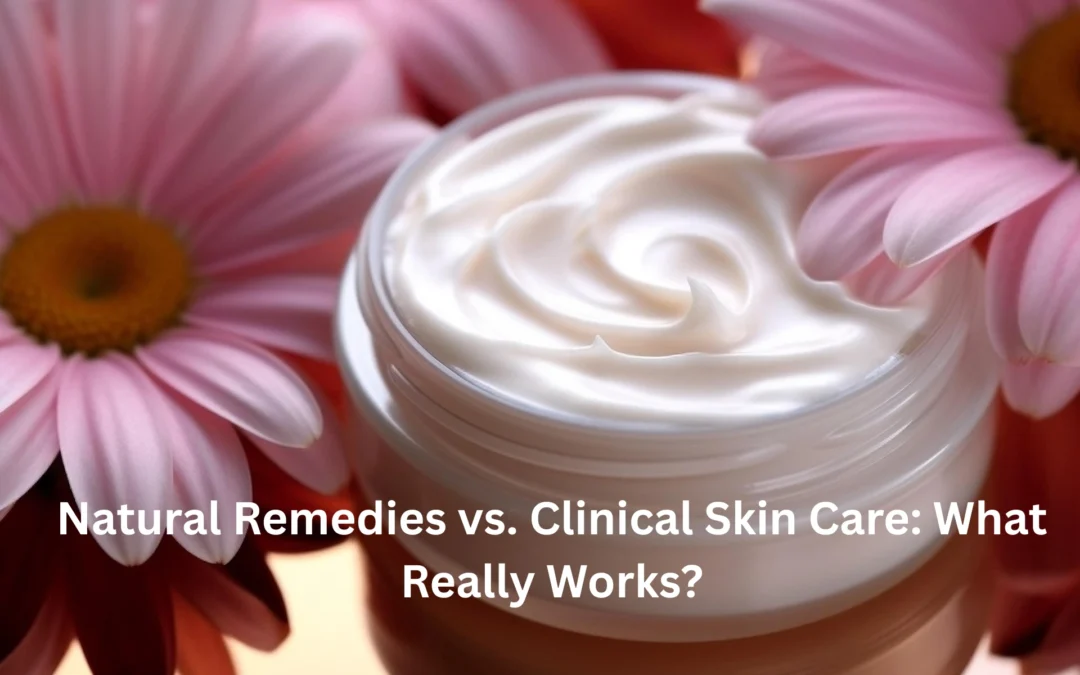Overview
Healthy, glowing skin is a sign of general well-being, and the argument between clinical skin care and natural therapies still rules the discussion of beauty and wellbeing in the modern world. While some individuals only trust licensed dermatologists and cutting-edge therapies, many people cling to traditional home cures. But what actually works for actual results?
We’ll examine the benefits and drawbacks of both clinical and natural skin care methods in this extensive guide. Knowing what your skin requires is essential to make wise decisions, whether you’re working with a skin care specialist doctor in Borivali West or experimenting in the kitchen.
1: Comprehending Your Skin
Knowing the fundamentals of your skin is crucial before deciding between clinical or natural therapies. The biggest organ in the body, the skin serves a number of essential purposes, including controlling body temperature and providing defense against microorganisms.
Important Skin Types:
- Normal: equal amounts of moisture and oil
- Oily: too much sebum, which frequently results in acne.
- Dry: insufficient moisture, which causes flakiness
- Combination: A blend of dry and greasy regions
- Sensitive: prone to redness and discomfort
You can accurately determine your skin type by visiting a skin clinic in Borivali east. To properly customize your skin care routine, this is an essential first step.
2: Natural Remedies’ Allure
The use of natural treatments has a long history. They promise easy, inexpensive, and chemical-free treatments and have been passed down through the years. Aloe vera, turmeric, honey, and coconut oil are common ingredients in do-it-yourself masks, scrubs, and cleansers.
Commonly Used Natural Ingredients:
- Aloe Vera: Calm and hydrating
- Neem: Antibacterial qualities
- Turmeric: anti-inflammatory and energizing
- Honey: anti-aging and hydrating
Due to their accessibility and perceived safety, many individuals have faith in these cures. But just because something is natural doesn’t guarantee that it works for everyone.
Advantages:
- Less synthetic chemicals
- Cost-effective
- Environmentally aware
Disadvantages:
- Unreliable outcomes
- Allergy or irritation risk
- Absence of scientific support
For complicated skin conditions, natural solutions can not always work, despite their widespread use. A dermatologist in Borivali West can offer expert advice for persistent pigmentation or acne.
3: Clinical Skin Care: The Science Behind It
Clinical skin care refers to products and treatments created through scientific study, frequently under the supervision of qualified experts. These consist of prescription drugs, laser treatments, chemical peels, over-the-counter cosmeceuticals, and more.
Important Clinical Interventions:
- Chemical Peels: Remove dead skin cells for a smoother texture
- Laser Therapy: Targets wrinkles, scars, and hyperpigmentation
- Topical Retinoid: used for acne and anti-aging
- Chemical Peels: exfoliate and cure pigmentation or acne scars.
Access to individualized, outcome-focused treatment regimens is made possible by seeing a licensed skin specialist physician in Borivali West.
Advantages:
- Supported by clinical research
- Expertly managed and observed
- Tailored therapies for certain skin issues
Disadvantages:
- More expensive
- Possible adverse effects
- Needs several sessions for best outcomes
4: Expert Opinions
For chronic skin diseases like eczema, cystic acne, melasma, or psoriasis, clinical therapies are significantly more beneficial, according to many Borivali skin doctors, even though natural solutions might be useful for minor issues or maintenance.
According to a renowned Borivali West skin doctor, “Natural remedies work best when utilized as adjunctive therapy. For severe problems, depending just on them postpones the start of effective therapy and could make the situation worse.
5: Success Stories from Real Life
Case Study 1: Dermatology to Do-It-Yourself
28-year-old marketing executive Pooja experimented with applying lemon juice and turmeric to her acne scars. She saw some slight improvement, but the marks remained. She had a series of chemical peels after going to a skin clinic in Borivali. Her skin cleared up considerably in three months.
Case Study 2: Organic Victories
The skin of 35-year-old software developer Ajay was flaky and dry. He started using coconut oil and aloe vera in a natural way. His skin texture gradually improved, and he was able to avoid the necessity for clinical intervention.
These illustrations demonstrate how a treatment’s efficacy frequently varies depending on the kind, intensity, and reaction of the patient.
6: A Well-Rounded Strategy for Skincare
The best aspects of both natural and conventional skin care are frequently combined in the perfect regimen.
An example of a routine
- Morning:
- Mild cleanser (clinical or natural)
- Clinical vitamin C serum
- Moisturizer (aloe-based, maybe)
- Sunscreen (SPF 30+ clinical)
- Evening:
- Cleaner
- Clinically prescribed cream or retinol
- A natural hydrator such as rosehip oil
Maintenance:
- A monthly appointment with a Borivali West skin specialist physician
- Regular facials at a reputable Borivali skin clinic
7: Frequently Held Myths Regarding Clinical Care and Natural Remedies
Myth 1: Natural Is Safe at All Times
Truth: The truth is that certain natural substances, such as lemon, can weaken the skin’s protective layer.
Myth 2: There Is No Safety in Clinical Treatments
Truth: These procedures are quite safe and successful when carried out by a licensed dermatologist in Borivali West.
Myth 3: Unless you have a serious problem, you don’t need a skin doctor.
The truth is that routine examinations with a Borivali skin doctor can stop problems before they arise.
8: Choosing the Best Skincare Routine
Consider this:
- What kind of skin am I?
- Are my worries medical or cosmetic?
- Have I tried any unsuccessful remedies?
- Am I willing to spend money and time?
A skin specialist in Borivali West can assist in creating a treatment plan that is tailored to your particular requirements if your concerns continue.
9: When to Get Expert Assistance
Indications That You Need to Consult a Skin Specialist:
- Inexplicable rashes
- Prolonged acne
- Severe pigmentation
- Abrupt changes in skin texture
A Borivali skin doctor will accurately diagnose your condition and provide cutting-edge, skin-safe therapies.
In summary, what actually works?
In the dispute between natural and clinical skin care, there is no one-size-fits-all solution. What actually works is determined by your skin type, the type and intensity of your issues, your tastes and way of life, and the advice of experts like a dermatologist in Borivali West.
The finest outcomes are frequently obtained with a hybrid strategy. For minor concerns and upkeep, use natural products; for more serious or persistent skin disorders, consult a Borivali West skin specialist.
Establish a regular schedule, make educated decisions, and give priority to routine consultations at a respectable skin clinic in Borivali. The finest of nature and science should be applied to your skin.
Call to Action
Are you fed up with trying natural cures and not seeing any improvement? To find a treatment plan tailored to your needs, schedule an appointment with a reputable skin specialist doctor in Borivali East right now!




